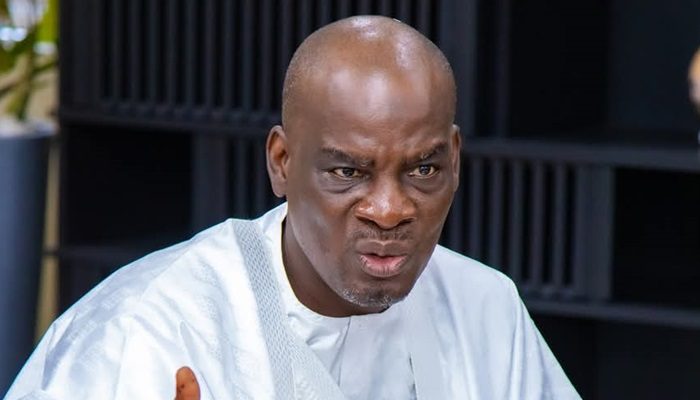The opposition National Democratic Congress (NDC) has reiterated its commitment to immediately end the double-track system at the Senior High School level, drawing a sharp contrast with the government’s newly announced plan to phase out the system by 2027.
The Minister for Education, Haruna Iddrisu, disclosed during a meeting with members of the Conference of Heads of Assisted Secondary Schools (CHASS) in Sunyani that the government will gradually eliminate the double-track system over the next two years.
This announcement, however, comes in stark contrast to the NDC’s campaign promise to abolish the system as soon as it assumes office if victorious in the 2024 general elections.
The double-track system was introduced in 2017 under the Free Senior High School (SHS) initiative to manage the surge in enrolment without overstretching existing infrastructure.
It was designed to maximise the use of limited school facilities by dividing students into two streams, thereby creating more space and time for academic work.
Under this system, students benefit from 1,134 contact hours per academic year—amounting to 3,402 hours over three years, which is 162 more hours than the previous school calendar.
However, critics, including the NDC, have consistently lambasted the policy as a stopgap measure that compromises quality and places undue pressure on students and teachers.
The party insists that ending the system is both urgent and achievable, accusing the government of lacking the political will to do so swiftly.
Minister Haruna Iddrisu’s comments suggest a more cautious approach.
He outlined a reform strategy that includes revising the SHS curriculum and restructuring the administration of the Ghana Education Trust Fund (GETFund) to accelerate infrastructure development and ensure a sustainable transition away from the double-track calendar.
“We are working to revise the curriculum…If the government is to succeed in ending the double-track system, not later than Monday, you should have a board so that all expenditures are properly approved by the board,” he said, addressing education stakeholders.
He assured that by 2027, the double-track system would be completely phased out, with the GETFund playing a central role in funding the necessary upgrades to school infrastructure nationwide.
The reforms, he said, would ensure that no student is denied access to education due to infrastructural constraints.
Despite the government’s reassurances, the NDC remains adamant that a more decisive and immediate termination of the system is possible.
They argue that further delays will continue to burden students and educators and have pledged to make ending double-track a top priority upon assuming office.
The debate over the double-track system has thus become a defining issue in Ghana’s education policy discourse—and potentially a major campaign battleground ahead of the 2024 elections.
With over 1.8 million students currently benefiting from the Free SHS and TVET programmes, how and when the double-track system ends could shape the future of secondary education for years to come.
- How one man’s CV defeated the Conservatives in Canadian elections - 4 May 2025
- How Ghana can grow its creative industry the Nigerian way - 4 May 2025
- JM, touch not the annointed - 3 May 2025




